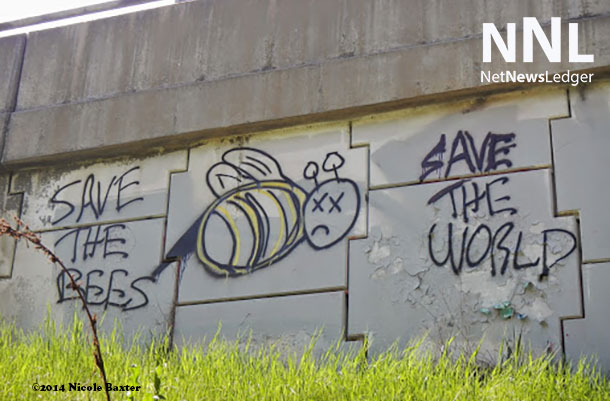

TORONTO – Ontario’s new pesticide regulation requires a permanent reduction of 80% in the use of corn and soybean seeds coated with neonicotinoids (imidacloprid, clothianidin and thiamethoxam). This regulation is novel in its designation of the coated seeds as pesticides.
Starting July 1, 2015, Ontario will be the first jurisdiction in North America to protect bees and other pollinators through new rules to reduce the number of acres planted with neonicotinoid-treated corn and soybean seeds by 80 per cent by 2017.
To support this goal, new requirements will be put in place for the sale and use of neonicotinoid-treated corn and soybean seed that will help ensure treated seed is only used when there is evidence of a pest problem. Reducing neonicotinoid use in these two crops presents the greatest potential to reduce pollinator exposure to the neurotoxic insecticide.
Pollinators, including bees, birds and butterflies, play a crucial role in agriculture and our ecosystem. Over the last eight years, Ontario beekeepers have experienced unusually high over-winter losses of honey bees, reaching 58 per cent following the winter of 2013-14. The level of over-winter losses considered to be acceptable and sustainable by most apiculturists is 15 per cent.
Friends of the Earth is pleased and impressed by Ontario’s leadership in finalizing this first permanent reduction in the use of neonicotinoids in Canada. With its new pesticide regulation, Ontario is delivering important benefits for nature including honey bees, native bees and other vulnerable species.
Ontario is addressing the single largest use of neonicotinoids in the province, coated corn and soy seed used on a large portion of the five million acres of these crops in Ontario. A growing body of research around the world reports no appreciable yield benefit from the use of neonicotinoids to coat soy and corn seed including a 2014 report by the US EPA and a 2015 leaked document from Canada’s Pesticide Management Regulatory Agency.
Friends of the Earth’s polling has shown that Ontario residents are firmly in support of positive action to protect bees, equally from rural and urban parts of the province, from all party affiliations and across all age groups. “The astounding public support for action to protect bees is an urgent signal to all politicians that the bee crisis is unacceptable,” says Beatrice Olivastri, CEO, Friends of the Earth Canada.
Ontario produces a wide variety of crops that rely on bees for pollination – apples, cherries, peaches and plums, cucumbers, asparagus, squash, pumpkins, melons, blueberries, cranberries and other crops.
“We hope Ontario will continue now to address other agricultural and horticultural uses of these bee-toxic pesticides,” says Olivastri.


